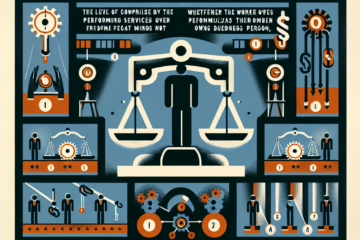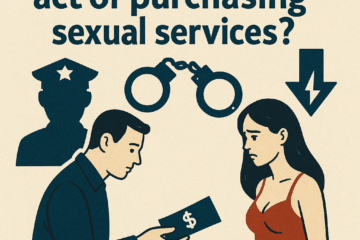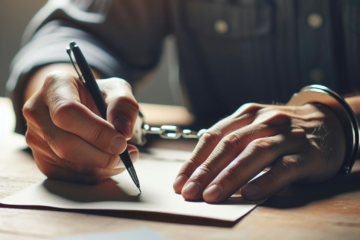Table of contents
Navigating the criminal justice process in British Columbia (BC) can be daunting. Understanding each step from arrest to trial is crucial for anyone involved in the process, whether directly or indirectly. This guide provides a comprehensive overview of what to expect, ensuring you are well-informed and prepared.
1. The Arrest
The criminal justice process typically begins with an arrest. Law enforcement officers must have reasonable grounds to believe that an individual has committed a crime. During the arrest, officers will:
- Inform the individual that they are under arrest.
- Explain the reason for the arrest.
- Advise the individual of their right to counsel, which means the right to speak with a lawyer.
Once arrested, the individual may be taken to a police station for booking, which involves taking photographs, fingerprints, and personal information.
2. Release or Detention
After the arrest, the individual may either be released or detained. Release options include:
- Release on a Promise to Appear: The individual signs a document promising to attend court on a specified date.
- Release with Conditions: The individual may be released with certain conditions, such as reporting to a police station regularly or avoiding contact with specific individuals.
If detained, the individual must appear before a judge or justice of the peace for a bail hearing within 24 hours. The judge will decide whether to release the individual on bail or keep them in custody until the trial.
3. The First Court Appearance
The first court appearance, also known as the arraignment, is where the individual (now referred to as the accused) hears the charges against them and enters a plea. The possible pleas are:
- Guilty: Admitting to the crime, which may lead to sentencing.
- Not Guilty: Denying the crime, which will lead to setting a trial date.
If the accused pleads not guilty, the court will schedule subsequent appearances for pre-trial matters.
4. Pre-Trial Proceedings
Pre-trial proceedings involve several steps aimed at preparing both the defense and prosecution for trial. These may include:
- Disclosure: The prosecution must provide the defense with all evidence they intend to use in court.
- Pre-Trial Conferences: Meetings between the defense, prosecution, and sometimes the judge to discuss case management and the possibility of resolving the case without a trial.
- Motions: Legal arguments made to the court to resolve specific issues before the trial begins, such as motions to exclude certain evidence.
5. The Trial
If the case proceeds to trial, the court will determine the guilt or innocence of the accused. Trials can be conducted by a judge alone or by a judge and jury. The steps in a trial typically include:
- Opening Statements: Both the prosecution and defense present an overview of their cases.
- Presentation of Evidence: The prosecution presents its evidence first, followed by the defense. Evidence may include witness testimony, physical evidence, and expert opinions.
- Cross-Examination: Both sides have the opportunity to question each other’s witnesses.
- Closing Arguments: Both sides summarize their cases and argue why the accused should be found guilty or not guilty.
- Verdict: In a judge-alone trial, the judge decides the verdict. In a jury trial, the jury deliberates and reaches a unanimous decision.
If the accused is found not guilty, they are acquitted and free to go. If found guilty, the process moves to sentencing.
6. Sentencing
During the sentencing phase, the judge determines the appropriate punishment for the convicted individual. Sentencing considerations include:
- The nature and severity of the crime.
- The accused’s criminal record.
- Mitigating factors, such as remorse or cooperation with authorities.
- Aggravating factors, such as the use of violence or premeditation.
Possible sentences range from fines and community service to imprisonment. The judge may also consider alternative sentencing options, such as probation or conditional sentences.
7. Appeals
If the convicted individual believes there was an error in the trial process or the sentence is unjust, they have the right to appeal to a higher court. The appeal process involves:
- Filing a notice of appeal.
- Submitting written arguments (briefs) outlining the alleged errors.
- Attending an appeal hearing where both sides present their arguments.
The appeal court can uphold the original decision, overturn the conviction, or order a new trial.
FAQ
Remain calm and cooperate with the police.
Exercise your right to remain silent and request to speak with a lawyer.
You must appear before a judge or justice of the peace within 24 hours of your arrest.
Yes, you may be released on bail or with conditions, depending on the circumstances of your case.
Missing a court date can result in a warrant for your arrest and additional charges. Contact your lawyer immediately if you miss a court appearance.
While you have the right to represent yourself, it is highly recommended to seek legal representation to ensure your rights are protected and to navigate the complex legal system effectively.
You may be eligible for legal aid services, which provide legal representation to individuals who cannot afford a lawyer.
The duration of the trial process varies depending on the complexity of the case, court schedules, and other factors. It can range from several months to years.
Yes, you have the right to appeal if you believe there was a legal error in your trial or if the sentence is unjust.
Pax Law can help you!
Contact Samin Mortazavi, a lawyer at Pax Law Corporation, where expertise and dedication converge to resolve your criminal law needs. As a knowledgeable lawyer with a profound understanding of Canadian criminal law, Samin Mortazavi offers strategic guidance and advocacy for navigating complex criminal cases. Whether it’s defending against charges, handling criminal appeals, or advising on legal rights, Pax Law Corporation is your trusted partner in managing your criminal law matters. Protect your future by reaching out to Samin Mortazavi today
Our lawyers and consultants are willing, ready, and able to assist you. Please visit our appointment booking page to make an appointment with one of our lawyers or consultants; alternatively, you can call our offices at +1-604-767-9529.



0 Comments